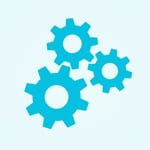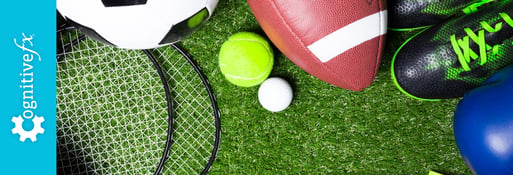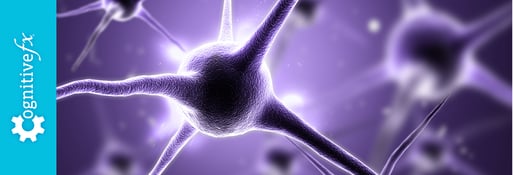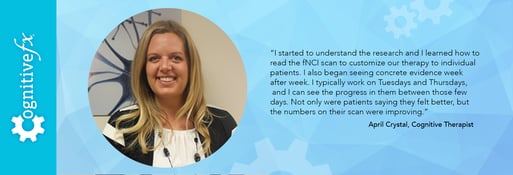5 Ways to Get Ready for Fall Sports
The new school year is just around the corner; kids are preparing for another year of learning, friendships, and experiences, and mothers are rejoicing everywhere! Whether it’s vocabulary tests,...
Published peer-reviewed research shows that Cognitive FX treatment leads to meaningful symptom reduction in post-concussion symptoms for 77% of study participants. Cognitive FX is the only PCS clinic with third-party validated treatment outcomes.
READ FULL STUDY
As concern about sports concussion has continued to rise over the last few years, there has been some hope that large-scale baseline testing, such as computerized cognitive tests, would help teams, schools, coaches and parents. The hope was that baseline tests could help athletes avoid some of the more serious consequences of multiple concussions. Computerized baseline tests or concussion testing is relatively cheap and can be used to test a large number of athletes in a short amount of time. But recent studies are showing that we need to use more than baseline tests to understand the influence of concussion.
While we don’t single out any specific commercial baseline test, several recent scientific studies have shown that there are major weaknesses in the basic approach to computerized concussion tests. Two problems stand out in particular.
First, results from the tests are strongly influenced by things other than a concussion, such as distraction, fatigue, and motivation.
Second, most athletes want to get back in the game as soon as possible after a concussion. Players at all levels are motivated to play every game as much as they can. If not, another player is likely to take their place on the team. Most athletes know that if they simply do bad on purpose on the initial baseline test, that if they do get a concussion later, their score won’t look as bad in comparison. Even under the best conditions, when these two problems are minimized, researchers have found many further issues of unreliability.
The brain is complex—the most complex entity in the known universe. Concussion, also, is a complex phenomenon, with dramatic variation from one person to the next. There is no quick and simple way to diagnoses concussion; nor is there a ‘one-size-fits-all’ solution for return-to-play decision making. Making computerized concussion testing challenging to completely assess the effects of a concussion.
Obviously, the best way to assess a concussion is to look at the brain. Until recently, there hasn’t been a way to observe the full effects of concussion using a brain scan. The fNCI (functional NeuroCognitive Imaging) procedure, however, now provides a way to image concussive effects accurately and reliably.
The power of the fNCI is that it identifies concussion neuromarkers in the brain with high confidence. These neuromarkers are rarely present in people without a concussion and they disappear with effective concussion treatment. By looking directly at brain activation and brain function, it is possible to rule out other problems, like lack of motivation or fatigue, when evaluating concussion. There is simply no better way to assess concussion—and there is no other way to gather as much crucial information about any one person’s brain to make such important decisions about an athletes return to play and life.

The "Cognitive FX Team" is a collaborative ensemble of distinguished doctors, therapists, and practitioners. Our experts are pioneers in the field of neuroimaging and concussion treatment. With extensive experience and a strong commitment to patient care, our team excels in utilizing cutting-edge technologies, such as functional MRI (fMRI), to provide personalized diagnostic and treatment strategies. Our renowned professionals have published groundbreaking research, developed innovative neuroimaging biomarkers, and conducted thousands of individualized patient assessments. We take pride in our holistic approach to patient care, focusing on physical, cognitive, and emotional aspects of recovery. As leaders in the industry, the Cognitive FX Team is dedicated to advancing the science of concussion diagnosis and treatment to provide our patients with the highest level of care and support.

The new school year is just around the corner; kids are preparing for another year of learning, friendships, and experiences, and mothers are rejoicing everywhere! Whether it’s vocabulary tests,...

After decades of research, Cognitive FX, in collaboration with Notus Neuropsychological Imaging, found the secret to understanding and recovering from a concussion: NeuroVascular Coupling (NVC). NVC...

April Crystal is one of our NeuroCognitive Therapists here at Cognitive FX.
.png?height=175&name=Differences%20Between%20Post-Concussion%20Syndrome%20PCS%20%26%20Chronic%20Trauma%20Encephalopathy%20(CTE).png)
A concussion is a traumatic brain injury (TBI) which is caused by the brain hitting the skull. This can happen in sports, car accidents, falling, or anything similar. A concussion can even be the...

Lindsey is our Lead Psychometrist here at Cognitive FX.

Cognitive FX is excited to announce that we will be at this year’s Your Health Expo on February 25 from 9 am to 6 pm at the South Towne Expo.
Published peer-reviewed research shows that Cognitive FX treatment leads to meaningful symptom reduction in post-concussion symptoms for 77% of study participants. Cognitive FX is the only PCS clinic with third-party validated treatment outcomes.
READ FULL STUDY